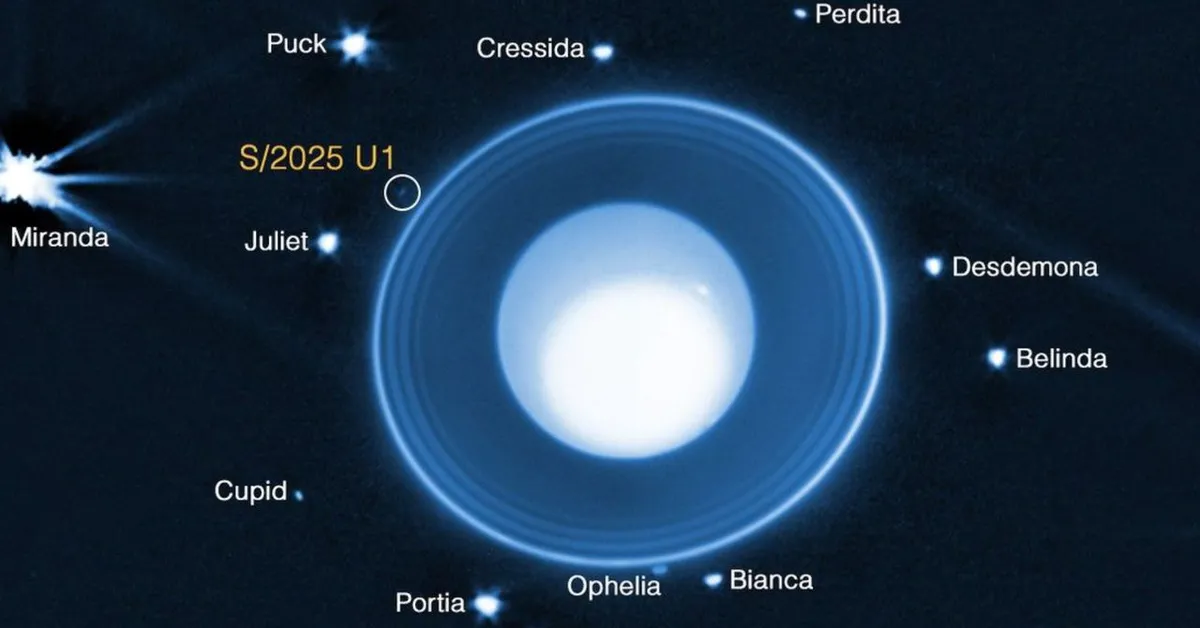
In a groundbreaking discovery, astronomers have identified a new exoplanet named L 98-59 f, located approximately 35 light-years from Earth. This exciting find adds to a group of four other planets that reside within the temperate zone of this intriguing planetary system. The potential for habitability in these worlds raises significant interest in ongoing astronomical research and exploration.
Recent measurements taken from the galaxy at the heart of the “Cosmic Horseshoe” suggest that it could contain the most massive object ever observed in the universe. This discovery not only challenges existing theories but also expands our understanding of black holes and their formation. As scientists continue to study this phenomenon, new insights may emerge about the role these colossal entities play in the cosmos.
In a remarkable turn of events, a super-energetic neutrino that struck Earth in 2023 has been confirmed as a genuine occurrence. Initially considered a potential measurement error, a new study has validated this “ghost particle.” Researchers are now focused on uncovering its origins and understanding the implications of this discovery for particle physics.
Mark your calendars! A rare planetary alignment will be visible from August 10, with prime viewing conditions anticipated later in the month. This celestial event offers a unique opportunity for astronomy enthusiasts to witness six planets aligning in the night sky. Here’s everything you need to know to catch this spectacular display at its best.
A highly secretive US space plane is set to conduct test flights aimed at advancing a revolutionary navigation technology based on electromagnetic wave interference. This innovation could mark a significant leap forward in the accuracy and efficiency of space navigation, potentially transforming future exploratory missions.
Artificial intelligence is now playing a pivotal role in the field of physics, with software capable of designing innovative experimental protocols that surpass human efforts. Although human physicists remain essential for oversight, AI’s involvement is leading to remarkable advancements in experimental physics, raising questions about the future collaboration between humans and machines.
China has introduced an AI chatbot named Wukong aboard its Tiangong space station. This initiative aims to enhance safety, navigation, and coordination in orbit. As space missions become increasingly complex, the integration of AI technology could prove invaluable for astronauts and mission control alike.
Recent scientific studies have uncovered the fascinating origins of the potato, revealing that the tuber we know today is the result of hybridization that occurred 9 million years ago. This process involved two plant species, one of which is an ancestor of the modern tomato. Such insights not only enrich our understanding of agricultural evolution but also highlight the interconnectedness of plant species.
In a remarkable paleontological find, a 500-million-year-old fossil of an ancient penis worm has been discovered in the Grand Canyon. This species, which boasts rings of sharp teeth, has been named in honor of the krayt dragons from Star Wars. This discovery sheds light on the evolutionary history of marine worms and their ancestors, expanding our understanding of ancient ecosystems.
Mathematicians have made significant progress toward a Grand Unified Theory of mathematics by extending the scope of a crucial insight linked to Fermat’s Last Theorem. This advancement could pave the way for a comprehensive unifying theory that connects various branches of mathematics, offering deeper insights into the discipline.
The electric constant plays a vital role in determining the force between electrical charges, a fundamental aspect of our universe. Without this force, the cosmos would devolve into a primordial soup, rendering existence impossible. Understanding the electric constant is essential for grasping the principles that govern physical interactions in both classical and modern physics.